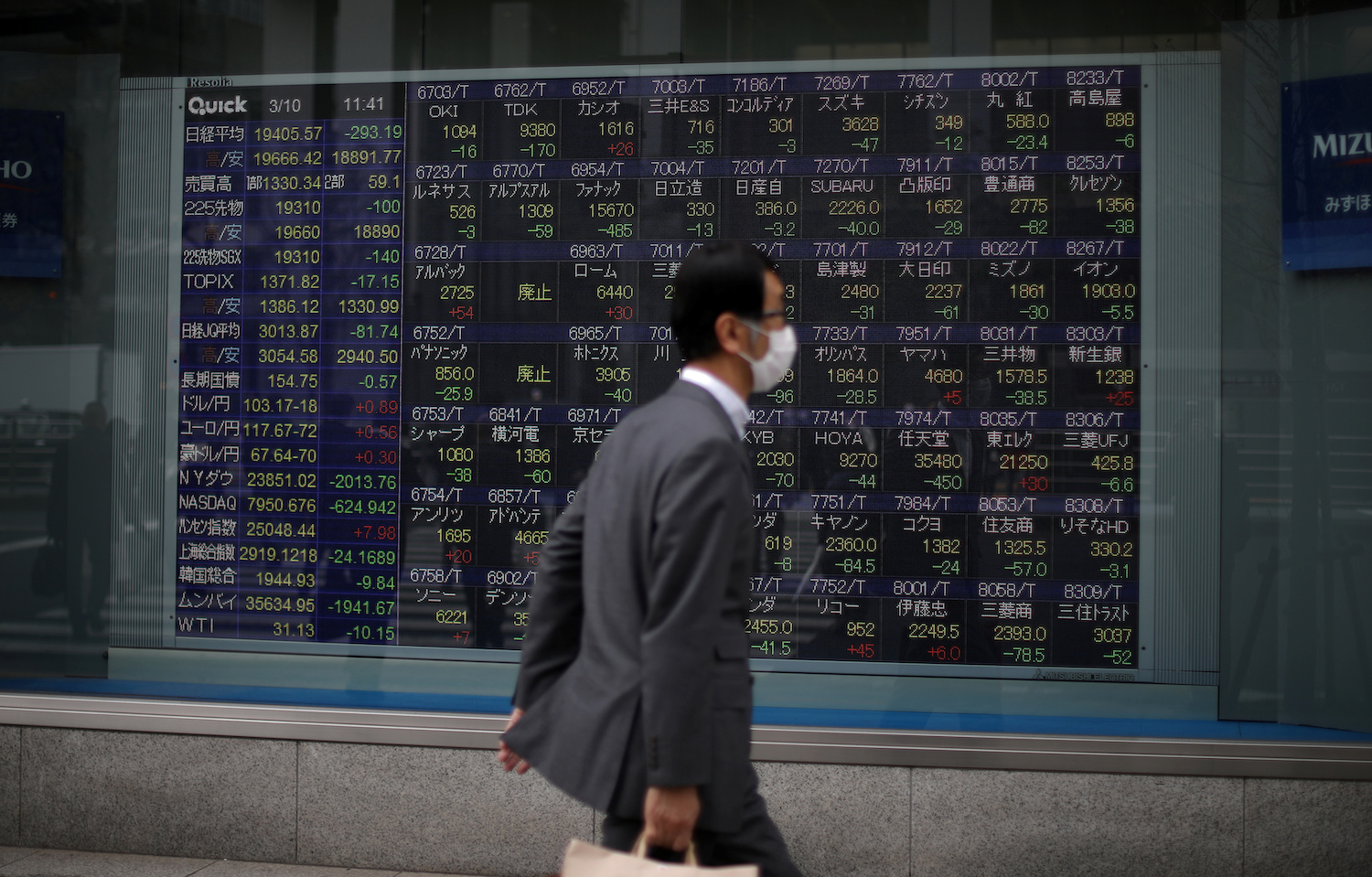Asia’s major equity markets inched backwards on Thursday with investors worried about surging inflation leading to interest rate hikes, while the debt stand-off in Washington was also distracting traders.
The Dow and S&P 500 provided a positive lead, though an unconvincing end to the day on Wall Street indicated lingering uncertainty on trading floors.
And the prospect that the Federal Reserve and other major central banks will soon begin to remove the ultra-loose monetary policies they put in place at the start of the pandemic has dampened sentiment even more in recent weeks.
Also on AF: Taiwan Takes Legal Route To Protect Itself From ‘China Tech Theft’
Concerns that banks will have to tighten policy quicker and sooner than hoped come as the global economic recovery shows signs of a slowdown, with a spike in coronavirus infections impacting on consumers.
“Growth has clearly hit an air pocket here with concerns about Covid, with the drama going on in Washington right now, the Chinese property sector that has sent tremors to global markets,” Christopher Smart, at Barings, said.
“Having said that, the general trajectory of the global economy remains very much where it was earlier this year.”
Data showed China’s factory activity contracted in September for the first time since February 2020 as the country faces an energy crunch that has led to power outages.
While there was little major reaction, analysts warned the problem remained a cause for global concern as it could exacerbate the supply chain crisis and add to inflationary pressures.
SUPPLY AND DEMAND
Still, Fed boss Jerome Powell told other central bank heads on Wednesday that the inflation problem would eventually taper off.
“The current inflation spike is really a consequence of supply constraints meeting very strong demand, and that is all associated with the reopening of the economy – which is a process that will have a beginning, a middle and an end,” he told a meeting of the bosses of the European Central Bank, Bank of Japan and Bank of England.
In Asian trade, Shanghai, Sydney, Seoul, Singapore, Wellington, Taipei, Manila and Jakarta all rose. But Hong Kong slipped after a three-day gain and Tokyo retreated after a recent rally to three-decade highs.
The Hang Seng Index eased 0.36%, or 87.86 points, to 24,575.64. The Shanghai Composite Index added 0.90%, or 31.87 points, to 3,568.17, while the Shenzhen Composite Index on China’s second exchange rallied 2.04%, or 47.90 points, to 2,395.05.
Markets in Hong Kong and mainland China will be closed on Friday for holidays.
The Nikkei 225 index fell 0.31%, or 91.63 points, to 29,452.66, while the broader Topix index lost 0.40%, or 8.13 points, to 2,030.16.
EVERGRANDE CRISIS
Traders are also having to deal with a range of other issues, including China’s crackdown on private industries, the potential collapse of its property colossus Evergrande, and haggling in the United States over the debt ceiling.
Republicans have blocked Democrat moves to lift the borrowing limit and with Treasury Secretary Janet Yellen warning the US government will run out of cash to meet its obligations on October 18, the race is on to avert what many say could be a catastrophic default.
Observers say that while the row is merely political brinkmanship, the fact that the deadline was so close was making waves on trading floors.
The rows come as Democrats also struggle to push through President Joe Biden’s multi-trillion-dollar infrastructure and social spending bills.
MARKETS
Tokyo > Nikkei 225: DOWN 0.3% at 29,452.66 (close)
Hong Kong > Hang Seng Index: DOWN 0.4% at 24,575.64 (close)
Shanghai > Composite: UP 0.9% at 3,568.17 (close)
New York > Dow: UP 0.3% at 34,390.72 (close)
- AFP with additional editing by Sean O’Meara
























